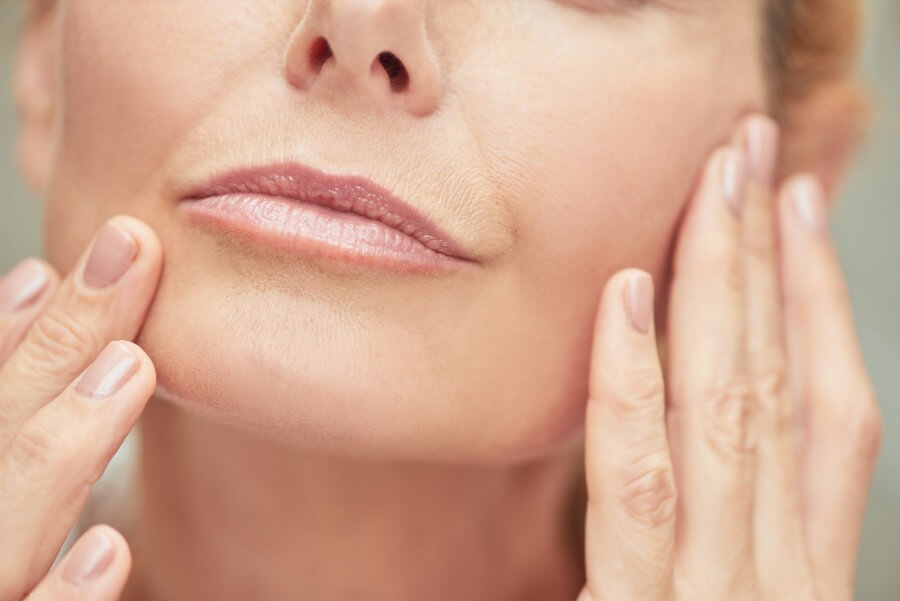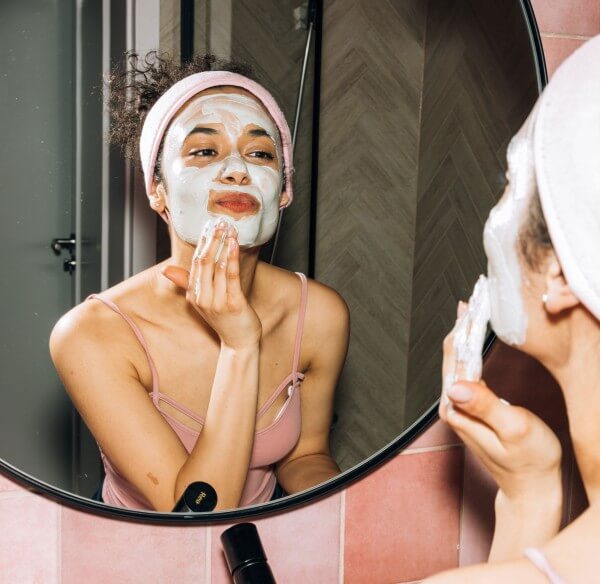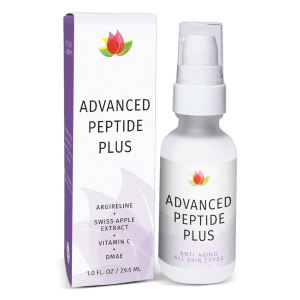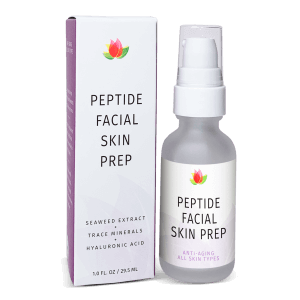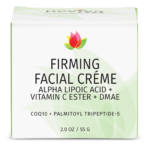Ingredients, Reviva Labs, Skin Care
How Peptides Help Skin: The Power of Peptides to Unlock a Youthful Glow
In the world of skincare, peptides stand out as one of the most influential ingredients for promoting a youthful and radiant complexion. These tiny proteins aren’t just another trend in the beauty industry; as we’ve written about previously, they’re ability to revitalize skin at the cellular level is backed by science. Understanding how peptides work can help demystify their role in skincare and why they might be the missing link in your beauty regimen.
Peptides: The Building Blocks of Skin
Peptides are short chains of amino acids, the building blocks of proteins, which are essential for the skin’s health and appearance. Proteins like collagen, elastin, and keratin are made up of these amino acids and are crucial for the skin’s structure, elasticity, and strength. As we age, the production of these proteins naturally decreases, leading to common signs of aging such as wrinkles, sagging, and a loss of firmness. This is where peptides come in; by signaling the skin to produce more collagen, they can significantly improve its appearance and texture.
The Mechanism: How Peptides Benefit the Skin
The skin is a complex organ with a remarkable ability to heal and regenerate itself, and peptides play a key role in these processes. When applied topically, peptides act as messengers, signaling the skin to repair itself. This signal can stimulate collagen production, which decreases with age. Increased collagen production leads to firmer, more elastic skin, reducing the appearance of fine lines and wrinkles. Additionally, peptides can also have anti-inflammatory properties, helping to soothe and heal the skin, making them beneficial for a variety of skin conditions beyond just aging.
Different Types of Peptides and Their Functions
There are many types of peptides, each with its own specific function. For instance, signal peptides encourage the skin to produce more collagen and elastin, firming peptides work to immediately tighten the skin, and neurotransmitter peptides, often referred to as “Botox-like,” help reduce the appearance of expression lines by inhibiting muscle contractions. Carrier peptides deliver trace elements like copper to the skin to help with wound healing and enzymatic processes. Understanding which type of peptide is in your skincare product can help you target specific skin concerns more effectively.
The Work Well with Other Ingredients
Peptides are most effective when used in conjunction with other powerful skincare ingredients. Antioxidants, such as vitamin C, can protect the skin from damage caused by free radicals and enhance collagen production, making peptides more effective. Hyaluronic acid, which can hold up to 1,000 times its weight in water, works synergistically with peptides to hydrate the skin deeply, plumping it up and reducing the appearance of fine lines. Niacinamide, or vitamin B3, improves the skin’s elasticity, enhances its barrier function, and works with peptides to even out skin tone and texture.
Moreover, peptides can support and enhance other peptides. Either by delivering a multi-pronged approached to skin restoration or by providing cumulative results. For example, Reviva Labs’ Multi-Peptide Complex combines four unique peptides: Matrixyl™, Adipofill’in™, Progeline™, Syn-ake™ that work synergistically to help alleviate nasolabial folds and deep wrinkles.
Clinical Evidence Supporting Peptides
The effectiveness of peptides in skincare is supported by numerous clinical studies. A study published in the International Journal of Cosmetic Science found that certain peptides could significantly improve skin elasticity and reduce the depth of wrinkles after just four weeks of use. This research highlights the potential of peptides as a key ingredient in anti-aging skincare formulations. Such studies provide solid evidence of the benefits of incorporating peptides into your skincare routine.
Incorporating Peptides into Your Skincare Routine
Incorporating peptides into your skincare routine is straightforward. They can be found in a variety of products, from serums and creams to masks and eye treatments. For best results, use peptide-containing products twice daily, in the morning and evening. Apply them to clean, dry skin, allowing them to absorb fully before layering on other products. Remember, consistency is key when it comes to skincare; you’ll likely begin to see results after several weeks of regular use.
Tailoring Peptide Skincare to Your Needs
Not all peptide products are created equal, and finding the right one for your skin type and concerns is crucial. For aging skin, look for products that contain a blend of signal and firming peptides to boost collagen production and firmness. If hydration is your main concern, seek out products that combine peptides with hyaluronic acid. For sensitive skin, look for formulations that include soothing peptides and are free from potential irritants like fragrances and alcohol.
The Future of Peptides in Skincare
As research continues, the potential of peptides in skincare only seems to grow. Innovations in peptide technology may lead to even more effective formulations, targeting a broader range of skin concerns. Future products may be able to deliver peptides more efficiently to the skin or utilize new types of peptides that mimic growth factors, offering unprecedented anti-aging benefits.
The Role of Peptides in Achieving Healthy, Youthful Skin
Peptides are a vital ingredient in the quest for healthy, youthful skin. Their ability to signal the skin to produce more collagen and repair itself makes them a powerhouse in combating the signs of aging. When combined with a consistent skincare routine and other beneficial ingredients, peptides can help you achieve the radiant, firm, and smooth complexion you desire. As the science behind skincare advances, peptides remain at the forefront, offering promising solutions for a variety of skin concerns. Whether you’re already a devotee or just starting to explore the benefits of peptides, there’s no denying their potential to transform your skin’s appearance.



